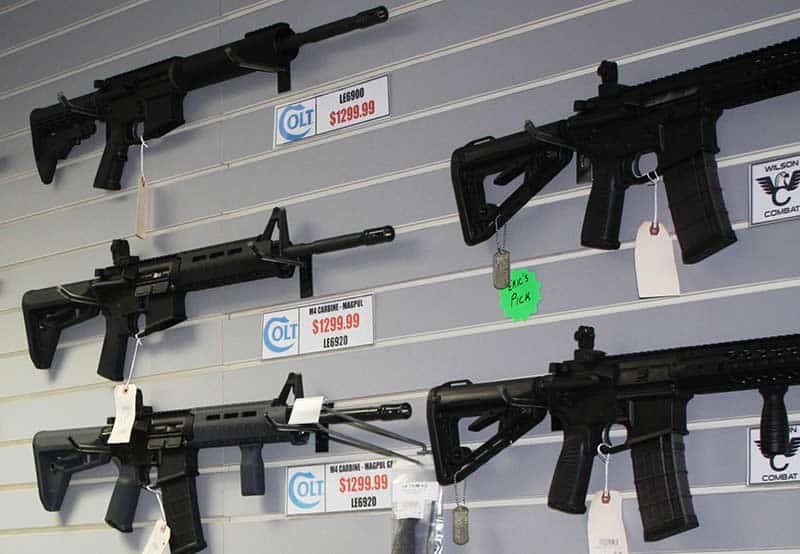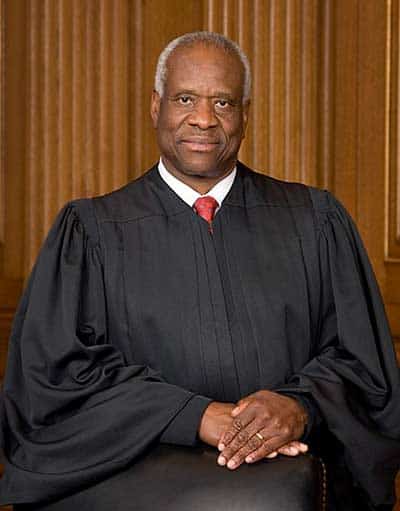Unconstitutional
Why This Word Is Showing Up More In Court Rulings
Just before I sat down to write this week’s installment, a federal district judge in central Florida handed down a 42-page ruling, posted online by Reuters, that declared the long-running ban on carrying firearms inside Post Offices is a Second Amendment violation.
U.S. District Judge Kathryn Kimball Mizelle, a Donald Trump appointee (see, elections do matter!) put it bluntly, which seems to be a hallmark among conservative judges now unraveling a lot of truly egregious legislation and regulations adopted over the years that have restricted your rights. Here’s part of what she said:
“First, nothing in Supreme Court dicta establishes that the United States may ban firearms in all government buildings. Second, the scope of the Second Amendment right is a legal question, not a factual one, and I need not hold an evidentiary hearing to resolve it. Instead, the government bears the burden to identify historical evidence supporting its challenged regulation. Finally, I explain why the United States errs in arguing that its proprietorship of federal land and buildings excludes vast swathes of the country from the protection of the Second Amendment.”
Elsewhere, Judge Mizelle observed, “Possessing a firearm in a federal facility is an activity that falls within the plain text of the Second Amendment … Thus, the United States must show that a ban on firearms in ordinary post offices is consistent with our nation’s founding-era tradition of firearms regulation.”
Of course, the ruling will be appealed, probably before you read this. But it is now on the record that one more federal restrictions on the right to bear arms has been ruled unconstitutional by yet another judge.
This isn’t new, but it is interesting and, in some ways, entertaining. Out in San Diego, California, U.S. District Judge Roger T. Benitez has made something of a habit declaring Golden State gun control laws unconstitutional. He’s done it with the state’s ban on so-called “large-capacity magazines” and so-called “assault weapons.”
Judge Benitez has gotten so far under Democrat Gov. Gavin Newsom’s thin skin that the governor has attacked him personally. When Benitez struck down the magazine ban, Newsom posted a rant on his official website calling the judge an “idealogue.”
Judge Benitez last fall ruled the state’s decades-old “assault weapons” ban is unconstitutional. California lawmakers were an unhappy lot.
When Judge Cormac Carney more recently struck down the California “sensitive places” gun ban, calling it “repugnant” to the Second Amendment, Newsom issued a statement to the California media.
“Defying common sense, this ruling outrageously calls California’s data-backed gun safety efforts ‘repugnant,’” Newsom told the Los Angeles Times. “What is repugnant is this ruling, which greenlights the proliferation of guns in our hospitals, libraries, and children’s playgrounds — spaces which should be safe for all.”
Judge Carney’s decision was a big win for the Second Amendment Foundation (SAF) and California Rifle & Pistol Association, and their partners in the federal lawsuit challenging the “sensitive places” law.
Judges Benitez and Carney are both George W. Bush appointees.
West Virginia Ruling
Back in December, U.S. District Chief Judge Thomas S. Kleeh with the Northern District of West Virginia declared a federal law prohibiting handgun sales to 18-20-year-olds is “facially unconstitutional.” He granted a summary judgment in another case brought by SAF, which is celebrating its 50th anniversary this year.
In his 40-page decision, Judge Kleeh wrote, “(B)ecause Plaintiffs’ conduct – the purchase of handguns – ‘fall[s] [within] the Second Amendment’s ‘unqualified command’ and the challenged statutes and regulations are not ‘consistent with the Nation’s historic tradition of firearm regulation,’ the Court FINDS 18 U.S.C. §§ 922(b)(1) and (c)(1) facially unconstitutional and as applied to Plaintiffs.”
Judge Kleeh is a Donald Trump appointee.
So, What’s Going On?
Much of this drama can be attributed to language in the Supreme Court’s June 2022 ruling in New York State Rifle & Pistol Association v. Bruen. In that decision, authored for the majority by Associate Justice Clarence Thomas, the high court set down new guidelines for deciding Second Amendment cases.
This excerpt from the Thomas opinion probably sums it up: “In keeping with Heller, we hold that when the Second Amendment’s plain text covers an individual’s conduct, the Constitution presumptively protects that conduct. To justify its regulation, the government may not simply posit that the regulation promotes an important interest. Rather, the government must demonstrate that the regulation is consistent with this Nation’s historical tradition of firearm regulation. Only if a firearm regulation is consistent with this Nation’s historical tradition may a court conclude that the individual’s conduct falls outside the Second Amendment’s ‘unqualified command.’”
Long story short: From now on, gun control laws must be considered for their historical relevancy; that is, challenged laws must demonstrate some analogous connection to laws in place at the time the Constitution was ratified.
While some liberal judges remain resistant to the new guidelines, other judges are looking at modern gun restrictions from a different perspective, and they are finding those laws wanting. Decades of restrictive gun control had been accepted until gun rights organizations began challenging them on straight constitutional grounds.
Put simply, the Constitution — and particularly the Bill of Rights — is a legal document which has been ignored for too long by too many lawmakers who don’t like guns or the people who own them. But the worm has turned, and one factor is the person in the Oval Office who makes the federal judicial nominations. I repeat: Elections matter, and if you like federal judges handing down rulings that uphold the Second Amendment, you need to vote.
By the (Embarrassing) Numbers
The establishment media recently had a problem on its hands, which many evidently felt they just couldn’t report because some data from a long-favored source went against the “narrative.”
The Gun Violence Archive reported how homicides declined in 2023 (18,906) from the number in 2022 (20,396), and suicides likewise declined from 27,038 to 24,090. This happened in the same year when so-called “constitutional carry” (permitless carry) became the law in a majority (27) of states. People can carry firearms for personal protection without a license or permit.
Anti-gunners had predicted all manner of mayhem in an effort to prevent these laws from being passed. Northeastern Global News said homicides declined by an estimated 12% overall.
Then along comes Ohio, where a study conducted for the Attorney General’s office and Bowling Green University revealed that in the year since the Buckeye State adopted “constitutional carry,” violent gun-related crime declined in six of eight cities examined by the study. Again, the data didn’t match the narrative, and it was only an Op-Ed in National Review by Attorney General Dave Yost which brought this report to the public’s attention.
There are some important points revealed by the Ohio study:
• Most cities’ crime rates decreased after the PCL (Permitless Carry Law) was enacted. Unlike the other six cities, rates in Dayton and Cincinnati increased slightly, however.
• Toledo, Parma, and Akron each experienced an average of 19% decrease in summed rates of crimes involving a firearm post-PCL.
• Based on data from June 2021 to June 2023, the enactment of the PCL does not appear to have any appreciable effect on law enforcement injuries or deaths by firearm in the cities of interest.
After reviewing the data, Alan Gottlieb with the Citizens Committee for the Right to Keep and Bear Arms commented, “Lo-and-behold, the numbers don’t support the narrative. You can bet if they did, the gun ban crowd would be crowing, but instead, it appears they may be eating crow.






